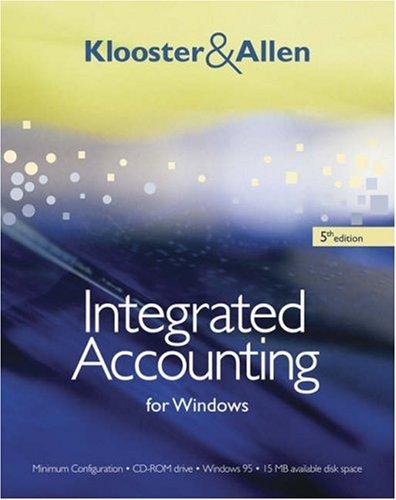Answered step by step
Verified Expert Solution
Question
1 Approved Answer
Hi, I am Debbie, I need workshop 6 answers. Evey answer must at least 100 words. Thanks. WORKSHOP 6 - Semester 1 2016 Topic 7:
Hi, I am Debbie, I need workshop 6 answers. Evey answer must at least 100 words. Thanks.
 WORKSHOP 6 - Semester 1 2016 Topic 7: Positive accounting theory QUESTION 1 - Question 7.2: Early positive research investigated evidence of share price changes as a result of the disclosure of accounting information. However, such research did not explain why particular accounting methods were selected in the first place. How did Positive Accounting Theory fill this void? QUESTION 2 - Question 7.4: Explain the management bonus hypothesis and the debt hypothesis of Positive Accounting Theory. QUESTION 3 - Question 7.13: Organisations typically have a number of contractual arrangements with debtholders, with many covenants written to incorporate accounting numbers. (a) Why would an organisation agree to enter into such agreements with debtholders? (b) On average, do debtholders gain from the existence of such agreements? QUESTION 4 - Question 7.17: If senior managers within a company were rewarded by way of accounting-based bonus plans then would they, or the owners/shareholders (or both), prefer the use of conservative accounting methods? Explain the reasoning for your answer. QUESTION 5 - Question 7.19: Assume that Kahuna Company Ltd decides to undertake an upward revaluation of its noncurrent assets just prior to the end of the financial year, the effect being that the total assets of the company increases, as does the total shareholders' equity. (a) (b) Explain the decision of management to undertake an asset revaluation in terms of the debt hypothesis of Positive Accounting Theory. Explain the decision of management to undertake an asset revaluation in terms of the management compensation hypothesis of Positive Accounting Theory. QUESTION 6 - Question 7.27: Zhang (2008) argues that if a borrower adopts conservative accounting methods this will reduce the risk exposure of the lender and will lead to a reduced interest cost for the borrower. What is the basis of this argument? 1 2
WORKSHOP 6 - Semester 1 2016 Topic 7: Positive accounting theory QUESTION 1 - Question 7.2: Early positive research investigated evidence of share price changes as a result of the disclosure of accounting information. However, such research did not explain why particular accounting methods were selected in the first place. How did Positive Accounting Theory fill this void? QUESTION 2 - Question 7.4: Explain the management bonus hypothesis and the debt hypothesis of Positive Accounting Theory. QUESTION 3 - Question 7.13: Organisations typically have a number of contractual arrangements with debtholders, with many covenants written to incorporate accounting numbers. (a) Why would an organisation agree to enter into such agreements with debtholders? (b) On average, do debtholders gain from the existence of such agreements? QUESTION 4 - Question 7.17: If senior managers within a company were rewarded by way of accounting-based bonus plans then would they, or the owners/shareholders (or both), prefer the use of conservative accounting methods? Explain the reasoning for your answer. QUESTION 5 - Question 7.19: Assume that Kahuna Company Ltd decides to undertake an upward revaluation of its noncurrent assets just prior to the end of the financial year, the effect being that the total assets of the company increases, as does the total shareholders' equity. (a) (b) Explain the decision of management to undertake an asset revaluation in terms of the debt hypothesis of Positive Accounting Theory. Explain the decision of management to undertake an asset revaluation in terms of the management compensation hypothesis of Positive Accounting Theory. QUESTION 6 - Question 7.27: Zhang (2008) argues that if a borrower adopts conservative accounting methods this will reduce the risk exposure of the lender and will lead to a reduced interest cost for the borrower. What is the basis of this argument? 1 2 Step by Step Solution
There are 3 Steps involved in it
Step: 1

Get Instant Access to Expert-Tailored Solutions
See step-by-step solutions with expert insights and AI powered tools for academic success
Step: 2

Step: 3

Ace Your Homework with AI
Get the answers you need in no time with our AI-driven, step-by-step assistance
Get Started


